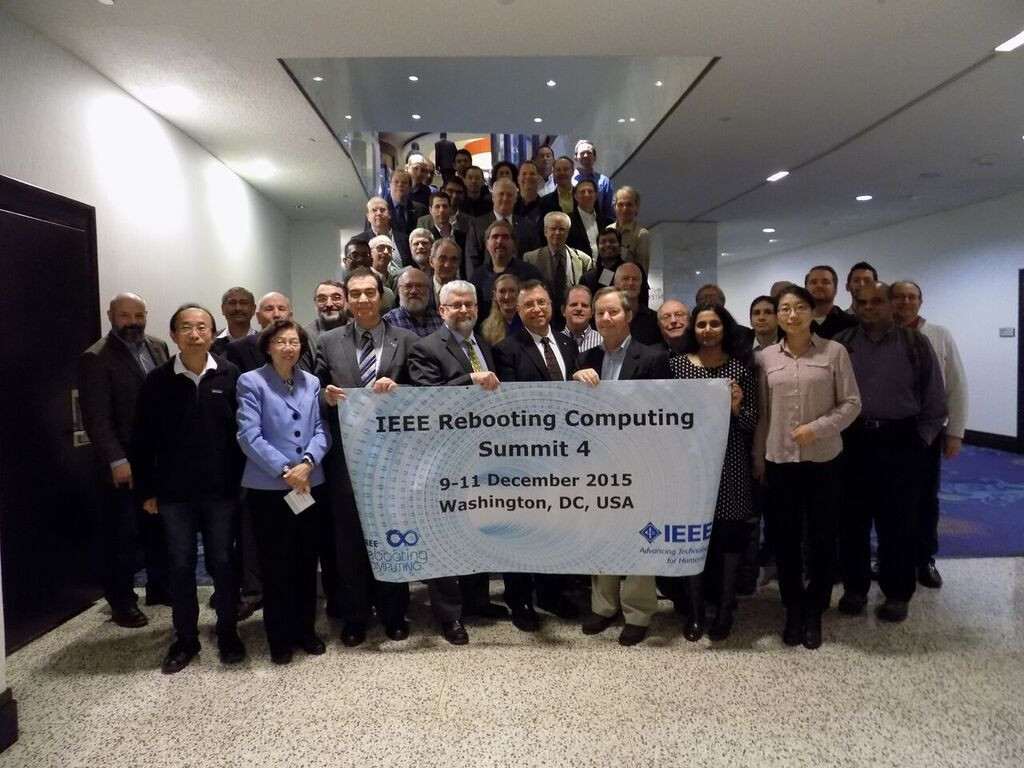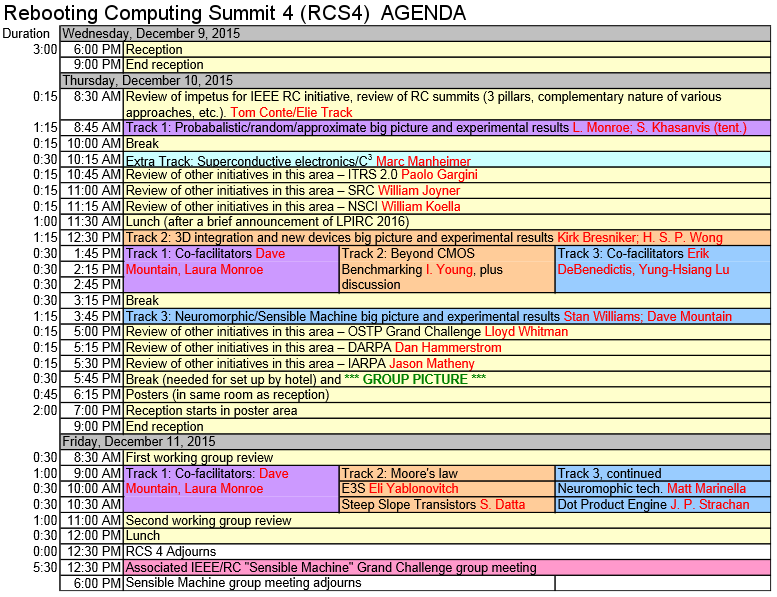Highlights of the 4th IEEE Rebooting Computing Summit (RCS4)

The fourth IEEE Rebooting Computing Summit (RCS 4), organized by the Rebooting Computing Initiative of the IEEE Future Directions Committee (FDC), was held on December 9-11, 2015 at the Washington Hilton, Washington, DC. RCS 4 included 73 invited participants from industry, academia, and government. RCS 4 built on RCS 1, 2, and 3, held in 2013 and 2014, with a theme of “Roadmapping the Future of Computing: Discovering How We May Compute”. The agenda for the Summit is shown below.
On the morning of Dec. 10, introductions were presented by co-chairs of the Rebooting Computing Committee Tom Conte and Elie Track, and RCS 4 Summit Co-Chairs, Erik DeBenedictis and David Mountain.
The Summit was organized around 4 Tracks, consisting of 3 primary tracks and a 4th extra track, with invited talks as shown below:
Track 1: Approximate/Probabilistic Computing
Laura Monroe, Los Alamos – Probabilistic and Approximate Computing
Santosh Khasanvis, Blue Risk – Architecting for Nanoscale Causal Intelligence
Track 2: Extending Moore’s Law
Kirk Bresniker, HP Labs – Memory Abundance Computing
Philip Wong, Stanford – Computing Performance – N3XT 1000X
Additional talks by Ian Young, Suman Datta, Matt Marinella, and Eli Yablonovitch
Track 3: Neuromorphic Computing/Sensible Machines
Stan Williams, HP Labs – Sensible Machine Grand Challenge
David Mountain, NSA – Neuromorphic Computing for NSA Applications
Additional talk by John Paul Strachan
Extra Track 4: Superconducting Computing
Marc Manheimer, IARPA – Cryogenic Computing Complexity Program
The Summit included brief overviews of a range of other Future Computing programs sponsored by government and industrial consortia:
ITRS 2.0, SRC, NSCI, OSTP Grand Challenge, DARPA, and IARPA
Also, a Poster Session with 13 posters covering a range of topics related to these tracks and initiatives.
Finally, after the formal end of RCS 4 on Dec. 11th, a special meeting was held to continue discussion on the Sensible Machines Grand Challenge.
While the various tracks featured quite different approaches for Rebooting Computing, there was general agreement that there may be an important role for all of these in different parts of future computing technology. Exponential improvement in computing performance may continue, but not via a single transistor scaling rule as in Moore’s Law in the past.
The RCS 4 Summary Report, as well as links to PDF slides of the invited presentations, will be posted on the Rebooting Computing Portal http://rebootingcomputing.ieee.org soon.



